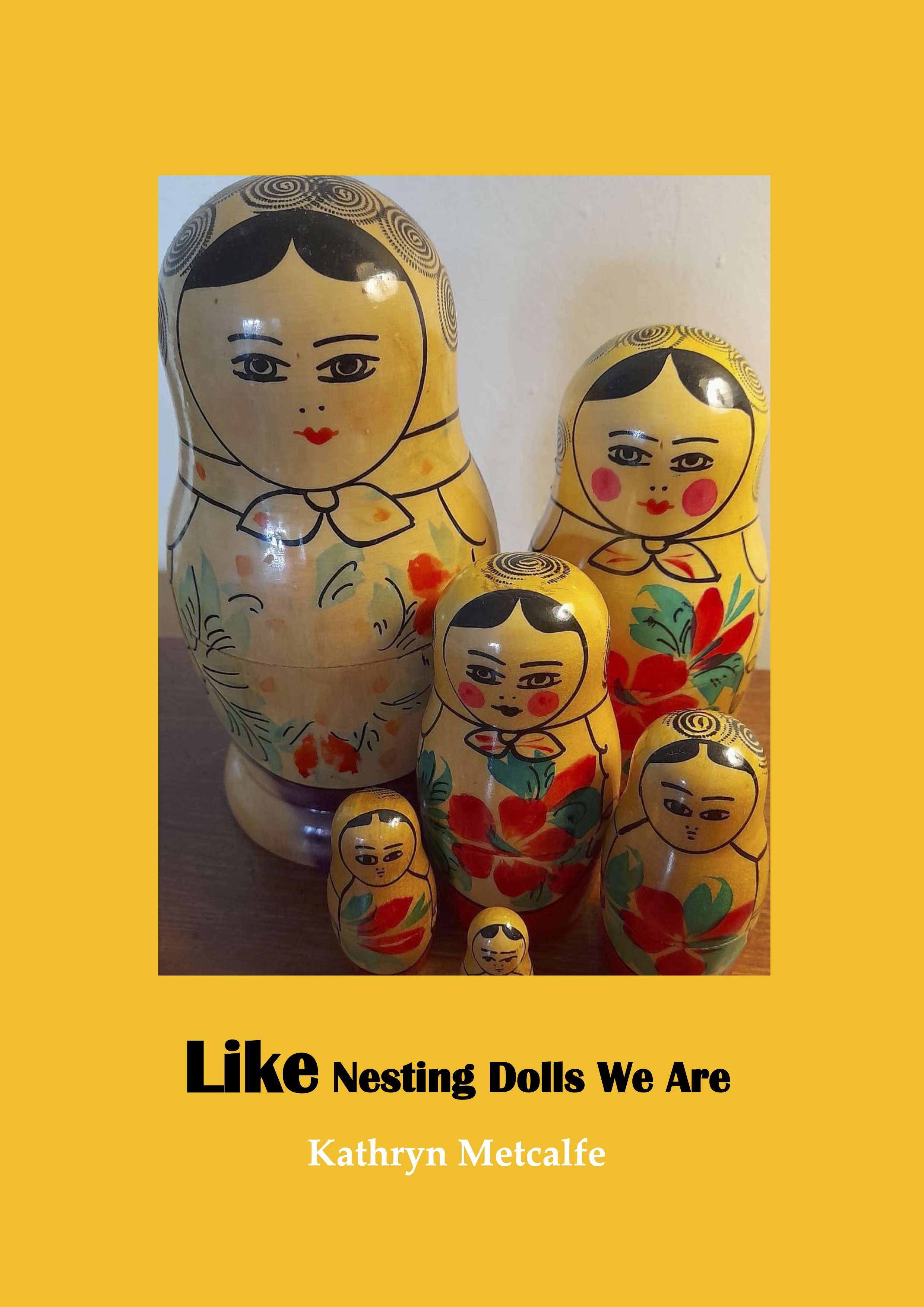Like Nesting Dolls We Are
Like nesting dolls indeed, these are poems of tender love and longing which open out to encompass a century or more of family history. They are poems of emigration and alienation, of love and loss, brought alive by the detail in Kathryn Metcalfe’s writing. I particularly liked the longing evoked in ‘Back Court’ where the patch of blue sky grows smaller every day, even ‘weeds would be welcome here’ and the young woman’s sigh is a small brown bird reaching for freedom. In Seanchaidh/Storyteller, the title character comes to life as ‘Ancient campfires burned / in his eyes as he worked / the fabric of hand me down / stories’.
The poems come to us as snapshots, scattered and seemingly random, in much the same way that family history is remembered and shared.
(Jennie Turnbull, Writer)
£8.00






